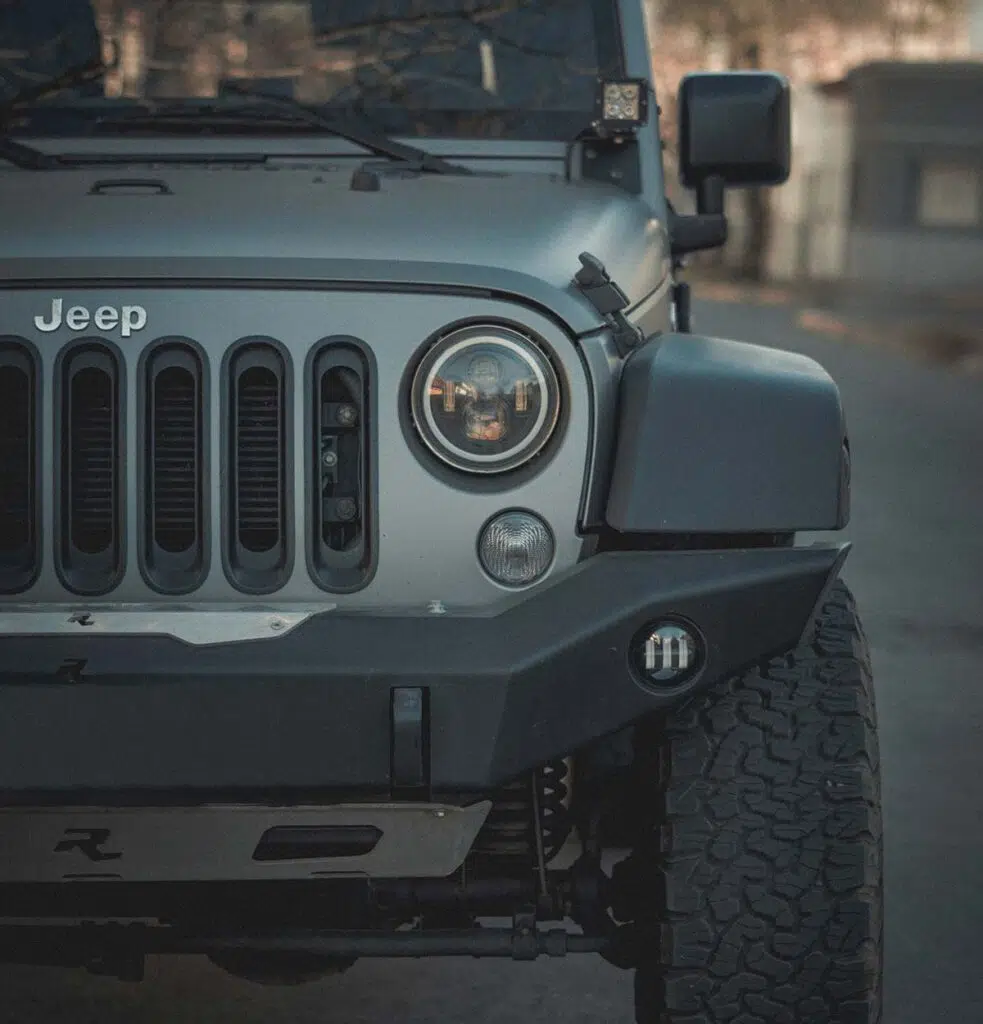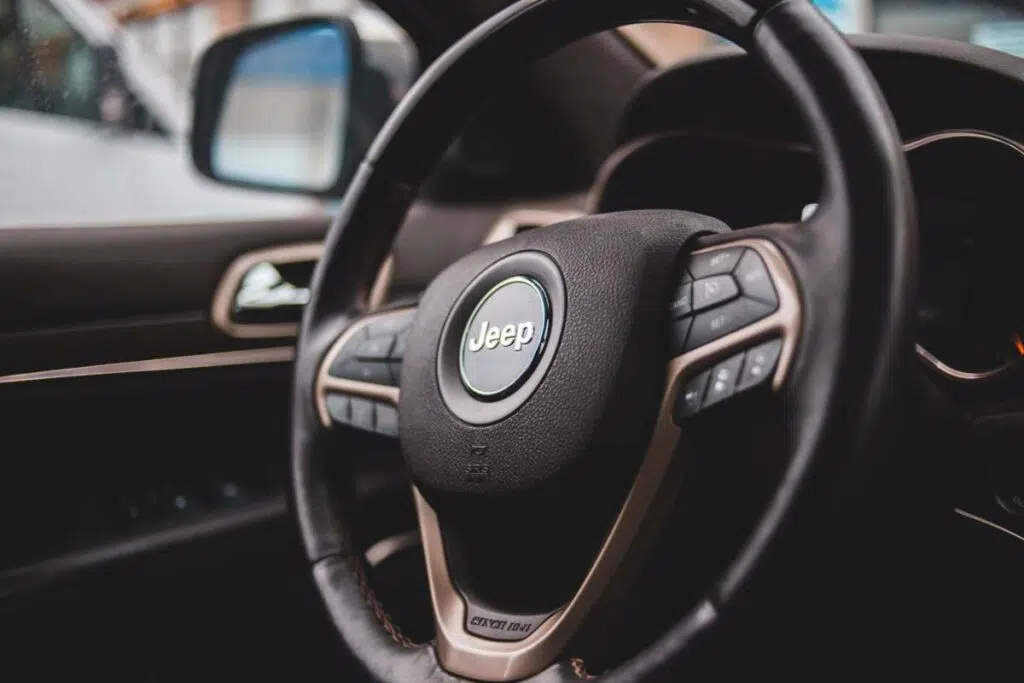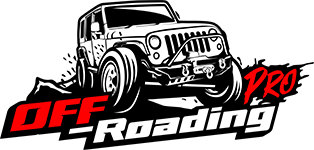There are several reasons for your Jeep horn to sound weak – most of which are issues with electrical and wiring and some component problems. While some assume Jeeps do not need a car horn, the 4×4 must have this safety feature working while on the road – for the sake of the driver, the passengers, and other commuters.
This article covers common causes of a weak Jeep horn and their corresponding fixes. Below, you will find 10 of the most common reasons your Jeep horn sounds weak:
- Faulty fuse
- Bad relay
- Rusted battery terminals
- Corroded, loose, or worn-out connectors
- Flawed wiring
- Broken clock spring
- Defective horn or horn button switch
- Damaged speaker cones
- Incorrect air pressure
- Water damage
By sharing these potential causes, this guide aims to equip you with the knowledge and tools to get your Jeep horn back to peak sound. This non-exhaustive list may not encompass all there is to know about Jeep horns. But the good news is you have the basics down if two or more causes happen simultaneously.
Most of these issues are manageable and inexpensive to fix and would be a fun undertaking for a Jeep owner. But should you find yourself in more complex situations, seek the help of a professional mechanic.
Reasons Your Jeep Horn Sounds Weak

1. Faulty Fuse
Because your Jeep’s horn needs electricity to work, it requires a fuse in good condition to ensure an uninterrupted flow. On the contrary, you can expect a weak horn (or worse, a non-working one) if your fuse is faulty.
Visual inspection of your horn fuse is necessary to know its current state. To do so, you will need the help of your owner’s manual or the fuse box cover to determine its exact location.
Once you have located your horn fuse, use a fuse puller or needle nose plier to pull it out. Next, hold it against the light and see if the middle section of its metal strip is broken. If yes, immediately replace it with a new fuse of the same amperage specified in your manual.
It is imperative not to deviate from the OEM’s recommendation. Otherwise, replacing your blown fuse would be futile.
2. Bad Relay
The relay is similar to a fuse because it is another electrical gatekeeper inside your Jeep. The only difference is that it is specifically responsible for switching electrical loads on and off.
That said, a relay gone bad is a likely cause of weakened horn sounds or even horn failure (you would likely hear a clicking sound from under your Jeep’s hood). And as with the horn fuse, you will need to locate your horn relay and examine it to find out.
Relays are typically found in the engine bay or under the steering wheel, but it is always best to refer to the service manual’s wiring diagram to know for sure. Once you have located the horn relay, use an AC relay to test it – to see whether its electromagnetic switch is causing your horn to malfunction.
Replace your relay if it is the culprit, provided you disconnect your vehicle’s battery first.
3. Rusted Battery Terminals
Doing the first two steps should already give you a pretty good idea about the condition of your battery. If the terminals are corroded, no power supply will go to your vehicle’s electrical components – hence, a weakened or a non-working car horn.
Just ensure there is no physical damage to the battery cables like splintering or fraying that warrants immediate attention.
At this point, you will want to remove corrosion from your battery terminals if you would like your car horn to work again – provided your Jeep horn is in perfect shape and battery cables are not damaged.
Here are the steps on how to do it:
- Apply a commercial-grade battery cleaning agent to corroded areas of the battery. This substance will help remove rust and neutralize battery acids. If commercial-grade variants are not readily available, revert to the “baking soda method,” which entails mixing a glass of water and a teaspoon of baking soda and scrubbing the said mixture on corroded areas using an old toothbrush or any other bristled brush.
- After applying your cleaning agent of choice to the corroded areas, rinse them off and dry them afterward. Take extra care not to let the cleaning agent or solution fall on your Jeep’s body paint and other engine components, especially if using a professional-grade substance. Use an air compressor to help speed up the drying process.
- Prevent future corrosion by taking preventive measures. These measures include applying a thin coat of petroleum jelly or anti-corrosion pads coated in corrosion-preventative compounds on rust-prone areas. The petroleum jelly trick is particularly helpful in improving conductivity between the cable ends and battery terminals.
- Attach the battery back to your Jeep.
4. Corroded, Loose, or Worn-Out Connectors
Your connector is another thing you may want to look into if your Jeep horn starts sounding weak. Given where your horn sits, grime and particle buildup is inevitable – the same is true for exposed parts of any vehicle.
As such, your connector may have already developed corrosion leading to poor conductivity. Either that, or it may have come loose due to driving vibrations.
Replacing your connector is not always necessary – retightening, or a good amount of WD-40 may be all you need to get your horn sounding great again. As with the relay, disconnect your battery before cleaning the corroded connector. Additionally, check that it is fully dried before plugging it back in.
5. Flawed Wiring
As soon as your connectors check out, inspect if you have broken wiring and whether it is causing your weak horn sounds. You will have to perform a voltage or light test using a multimeter like a Fluke 289 True-RMS Standalone Logging Multimeter (view on Amazon).
Take care not to have the metal parts of the probes touch each other as you do these tests, lest you risk damaging your Jeep’s electrical system on top of having a malfunctioning horn.
It can be pretty tricky performing these tests. Still, the results will point you in the right direction.
A conductivity failure would mean you must consider other things at fault, including fuses, relays, clock springs, and switches. Include visual inspection of your cables while at it to rule out possible rodent damage.

6. Broken Clock Spring
The clock spring may appear to exclusively serve your Jeep’s steering wheel functions, but it actually does more. Simply put, this spiral-wound connector makes it possible for the steering wheel to turn without disrupting the electrical connection between buttons, switches, and components like your horn.
The wires inside the clock spring are delicate because of how they are twisted and tend to be prone to damage, especially when a Jeep is high-mileage or serviced too many times.
A problem with the clock spring is probably one of the items in this list that is easier to detect, as other symptoms often accompany it.
Usual telltale signs synchronous with this issue include an illuminated airbag warning light and other defective buttons on the steering wheel. However, these other symptoms do not occur all the time.
Although rare, your Jeep horn may be the only thing affected if something wrong is discovered with your clock spring. If found defective, replace your vehicle’s clock spring at once.
7. Defective Horn or Horn Button Switch
Although horns have been proven numerous times to last beyond a vehicle’s lifecycle, these tiny components can break down (in fact, its average lifespan is approximately six years). Needless to say, how frequently this would happen depends on the severity of its usage – for instance, slamming on the horns like mad during heavy traffic.
But even if this were not the case, your Jeep horn can still sound off if there is a problem with voltage or one of them has worn out. A test light will let you know if there is an immediate need for a car horn replacement (usually takes 30 minutes).
Using your service manual as a guide, see if your voltage readings are up to spec. Otherwise, you may need to replace your horn button switch.
8. Damaged Speaker Cones
While not often associated with car horn issues, a punctured or dented speaker cone is among the most likely causes as to why your Jeep horn sounds weak.
It is fairly easy to get your speaker cones damaged, as most of them are made of paper. And when that happens, you may experience a weaker horn, in addition to crackling or grating sounds.
Obtaining a replacement cone for your Jeep can be tricky – but not impossible. But if you do not want to go this route just yet, you can repair your speaker cones and do your “patchwork” with tissue paper. Note, however, that tissue is not the only material you can use.
Depending on the severity of the damage, you may need to utilize something more durable. Whichever you choose, ascertain that the material is light enough and does not adversely affect how the speaker cone operates.
9. Incorrect Air Pressure
Occasionally, issues with your vehicle’s air pressure system can be attributed to weak horn sounds. To rule this out, inspect whether or not your pressure gauge on the compressor have correct readings. If they are not what they should be, make necessary adjustments to rectify the pressure readings.
Check for punctured airlines, plugged cabin filters, and other problems linked to air conditioning or the car compressor. If you suspect air bubbles as the cause, then bleed your Jeep’s air horn system.
It could also happen that your Jeep horn is just running low on air pressure. To increase the air pressure, locate the Schrader valve on your car horn and pump air into it with a tire inflator like a VIAIR 450P-45053 RV Silver Automatic Portable Compressor Kit (view on Amazon).
Continue doing this until the sound of your horn reaches 100–110 decibels (some online sources recommend 139 dB, but that may not be permitted in certain locations).
10. Water Damage
This issue is often discussed in forums and is not something that only happens to drivers who use their Jeeps to cross mud holes or considerable depths of water.
Water in the car horn can be due to heavy rains or a simple car wash. But let us face it – we all are guilty of going wild and letting our adventurous spirits loose in our Jeeps at some point.
Experienced Jeep owners know better than most that prevention is the only way to go. One of their best practices in keeping water from getting inside the horn’s innards is by using a rubber band, water repellant, and a ziplock bag or pantyhose before they go mudding or traversing somewhere wet.
However, we may not always find ourselves in a similar position where we can prevent car horn water damage before it happens. If you suspect water has already seeped into your horn, then follow these steps:
- Use a 10-mm wrench.
- Disconnect your battery.
- Remove your horn.
- Drain the water out of it (do not be afraid to bend the black flat metal piece where the horn is mounted as you do this).
- Ensure the horn is fully dry, then remount it.
- If your stock car horn is too far gone, Jeep savants recommend getting a PIAA Twin Tone Sports Horn Kit (view on Amazon) or one from Caliber SXT as a replacement.
Cost to Fix a Car Horn
Based on online search results, the average cost of a car horn repair is between $10 and $89 (if done in your local auto shop). Prices do not include taxes and other extraneous fees. Naturally, this value would be a lot cheaper if you do the fix yourself.
If the reason behind your weak Jeep horn is slight water damage that can be fixed by draining and airing out the component, you might not have to spend anything. But if the culprit is something more troublesome, you may need to replace your car horn entirely.
At that point, your expenses may fall between $100 and $400. Further fluctuations in costs will depend on your choice of aftermarket horns and whether or not you will hire a professional to do the replacement.

Conclusion – Reasons Your Jeep Horn Sounds Weak
To summarize, here are the 10 most common culprits behind a weak Jeep horn:
- Faulty fuse
- Bad relay
- Rusted battery terminals
- Corroded, loose, or worn-out connectors
- Flawed wiring
- Broken clock spring
- Defective horn or horn button switch
- Damaged speaker cones
- Incorrect air pressure
- Water damage
Ultimately, no Jeep owner wants to taint their reputation with a horn that sounds like a sick Road Runner. So on top of being savvy with the contents of this article, proper upkeep of your vehicle and its components is important, too.
Cleaning your Jeep horn with soapy water and using compressed air to rid it of dirt and other particles are some ways you can keep it in tip-top shape. And if you do these regularly, you might not feel as embarrassed with the honk your horn makes the next time another vehicle drives past you.
Kris is an avid off-roader and outdoor enthusiast who loves to brave the elements and take on challenging terrain. He also enjoys sharing his passion and knowledge with others so that they, too, can appreciate the ride.
About Kris
